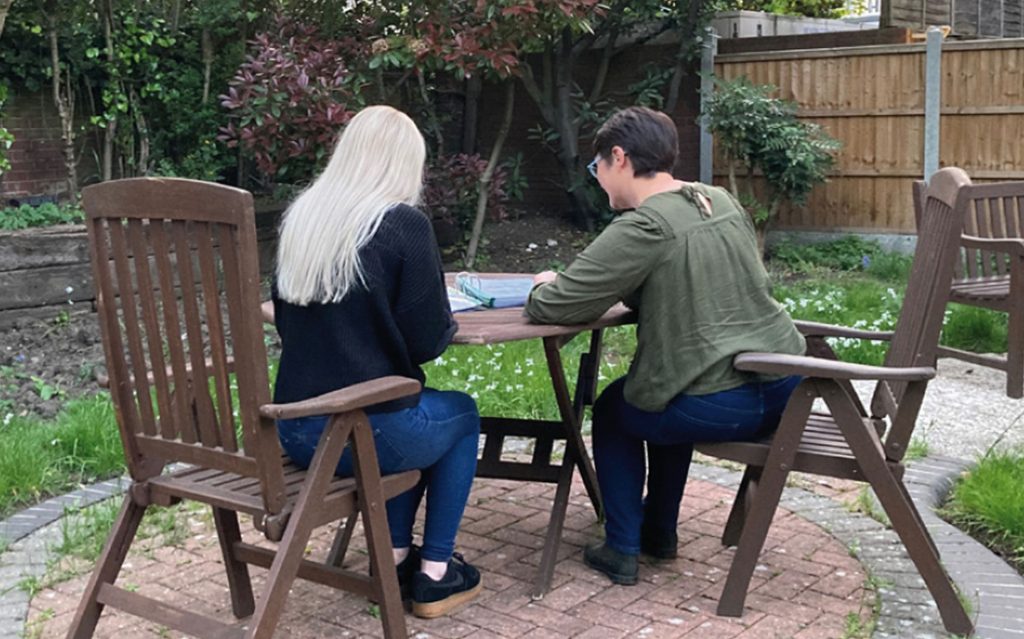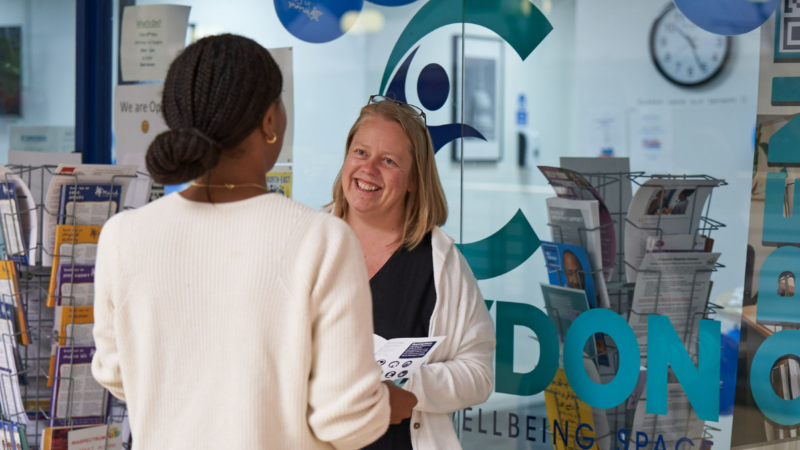Almost 10,000 people live in areas across Croydon considered to be within the 10% most deprived in England and research shows that people living in these areas are more likely to need mental health care but less likely to access support and to recover.
With the borough’s population expected to increase 12% by 2035, the number of people experiencing mental health illnesses are also likely to increase.
In response to this, the Croydon Mental Health Transformation Programme launched in 2019 to deliver preventative and person-centred mental health care to meet the needs of the borough’s diverse population.
This involved talking to service users, carers and health and care professionals, which revealed that mental health services were sometimes fragmented, hard to access and not understanding of the needs of Croydon’s Black Asian and Minority Ethnic communities.
Therefore, the programme has been carefully designed with health, social and local voluntary and community sector partners to create tailored and preventative community-based services that worked together to support residents’ all-round wellbeing and recovery.
This new way of working has marked a transformation in the delivery of services across Croydon, wherein partnership working is now central in the design and delivery of both clinical and community mental health care.
We have achieved a lot in challenging circumstances, and we look forward to doing more.”
Wayland Lousely, Head of Mental Health Commissioning
Wayland Lousely, Head of Mental Health Commissioning, NHS South West London (Croydon), said: “Having a strong, collaborative partnership across the Voluntary sector, NHS and Council with Service Users and Carers at the heart of what we do has been central to designing and delivering these new services in Croydon. We have achieved a lot in challenging circumstances, and we look forward to doing more.”
Delivering mental health care across Croydon

Here are some of the ways we’re delivering mental health care across Croydon:
Mental Health Recovery Space
A Mental Health Recovery Space opened in October 2020 by Mind in Croydon to offer a safe and supportive, non-clinical environment for people experiencing a social mental health crisis.
Offering short term, recovery focused support, crisis support workers have worked with 941 clients in the community to manage their crisis, identify triggers and develop effective ways of coping.
Mental Health Personal Independence Coordinators (PICs)
In partnership with Age UK Croydon, our Mental Health Personal Independence Coordinators (PICS) have been providing person centred care-co-ordination, emotional support, and advocacy for people over 50 in the community.
Since inception in June 2021, PICs have supported 268 clients with multiple long-term conditions and often age-related disabilities to develop and fulfil personal recovery plans and support them to access local support.
Croydon Health and Wellbeing Space
Working in partnership with Mind in Croydon and Croydon BME forum, Croydon Health and Wellbeing Space launched in January. Centrally located in the Whitgift Centre, support workers- supported by a psychologist, and mental health nurse provide both clinical and social care support for mental health, help to access to welfare benefits, housing, money management, training, and employment.
The hub received 94 referrals in the first 3 months, with 223 people coming in to get free advice and support to manage their mental health and improve independence.
Mental Health Clinical Assessment Unit at Croydon University Hospital
In September 2021 a dedicated Mental Health Clinical Assessment Unit opened at Croydon University Hospital to assess adults who arrive at the Emergency Department (ED) presenting with mental health symptoms.
Supported by clinicians from South London and Maudsley NHS Foundation Trust, the unit has supported nearly 100 patients in mental health crisis to get specialist mental health care or discharge home with the right community care. The unit has also been pivotal to providing the ED with capacity to care for general patients knowing that those who need mental health support are safe and cared for.
